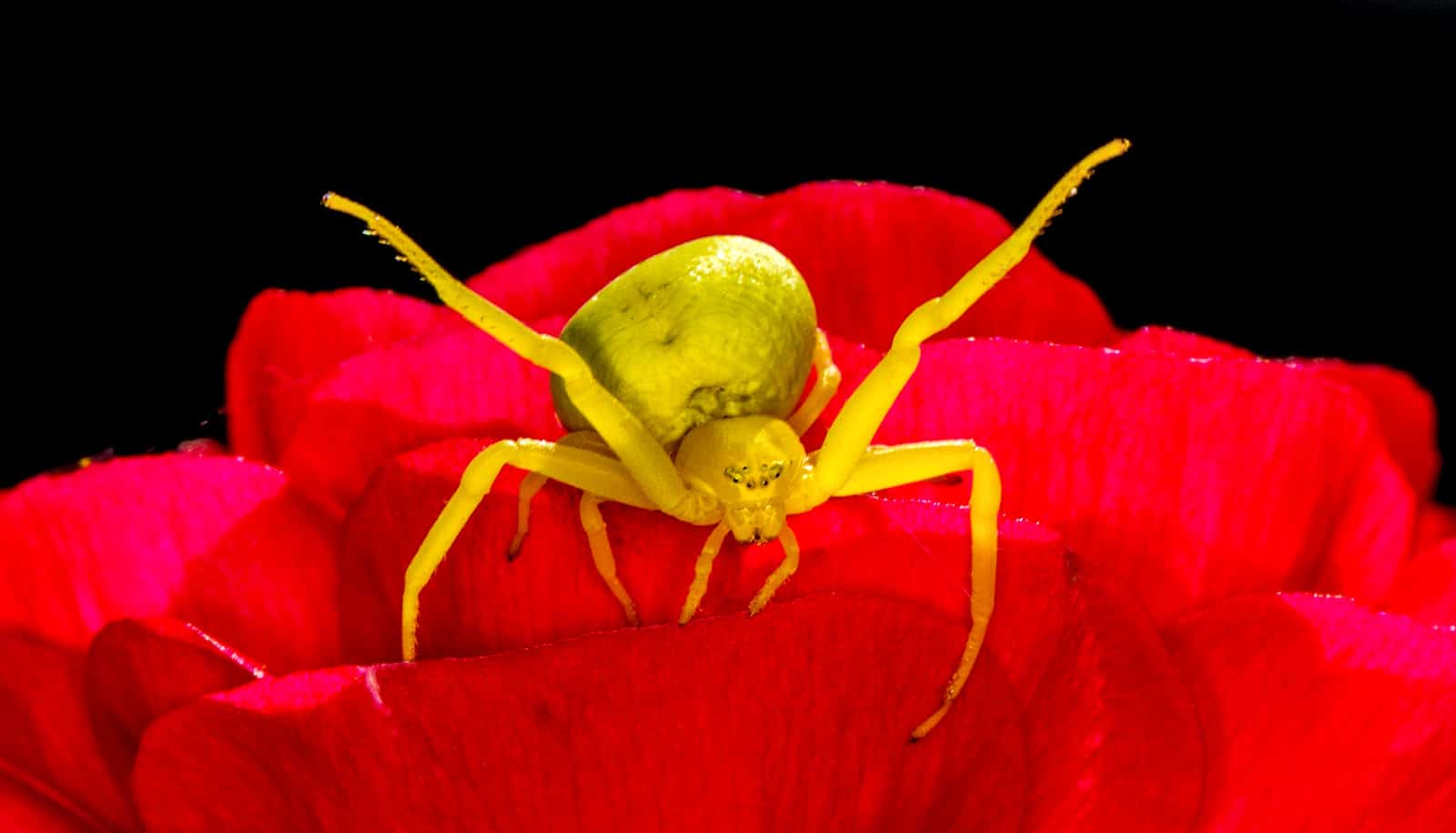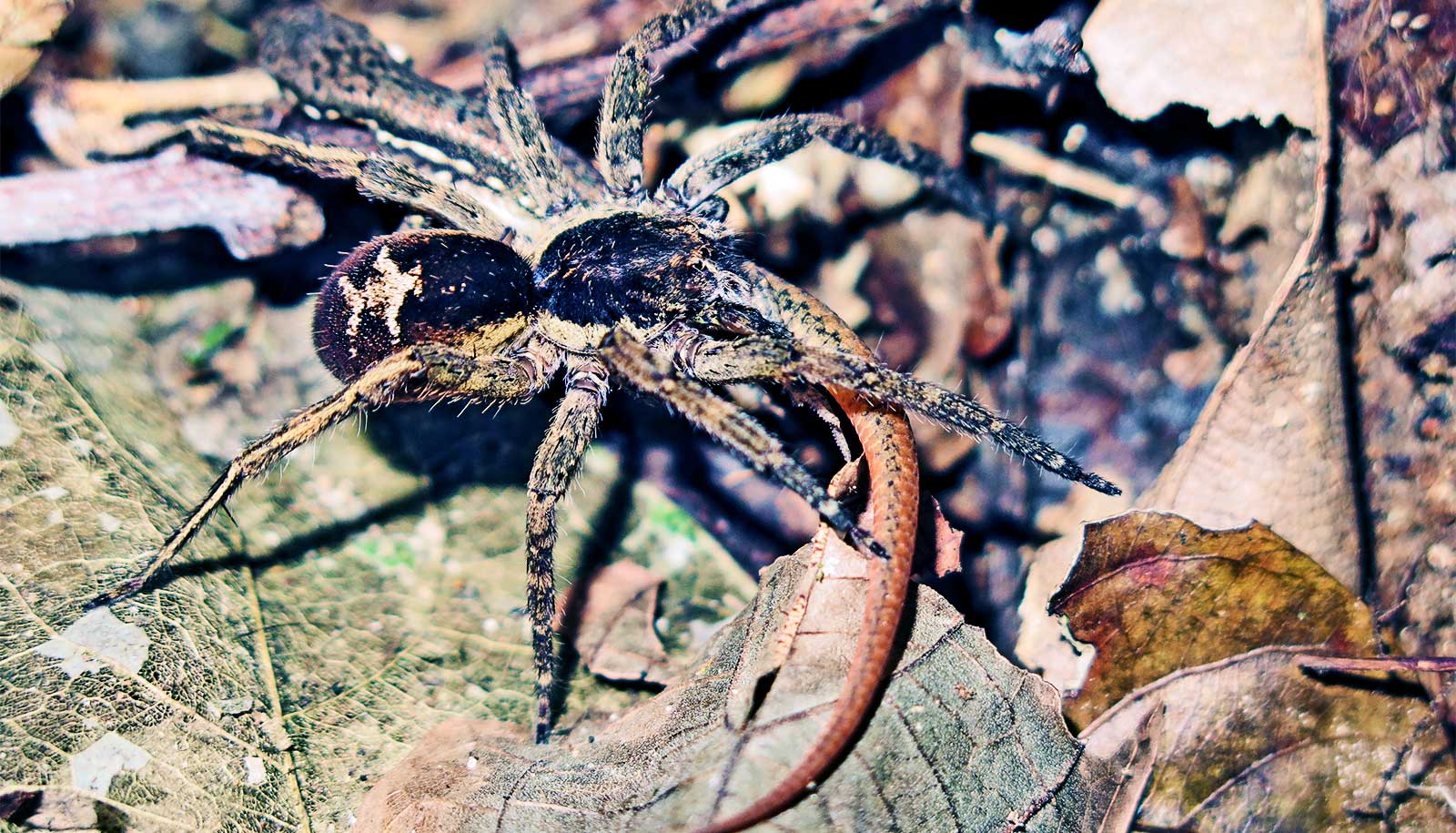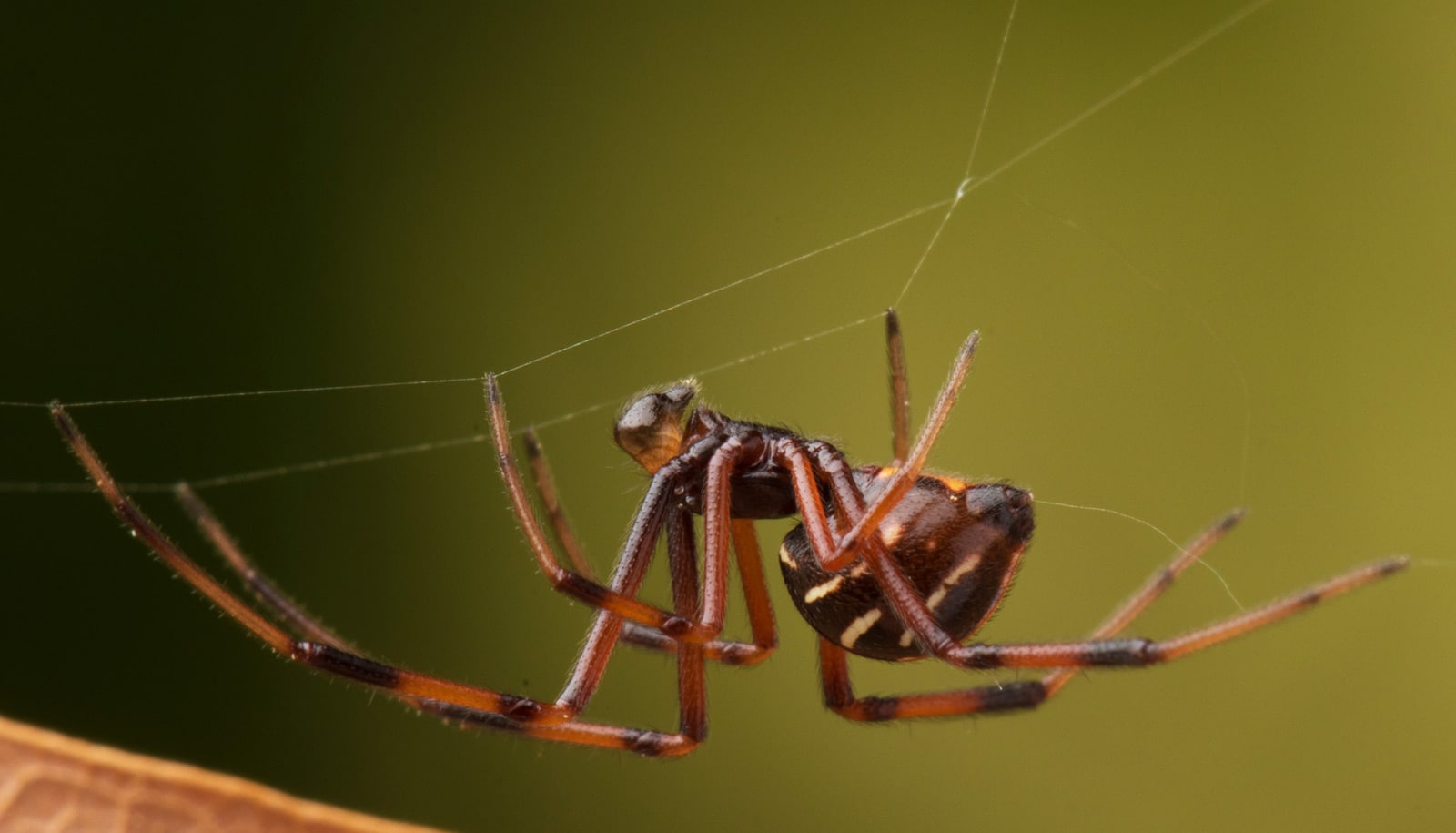Spiders have a special place in Halloween lore, but they’re more than just scary, hairy, creepy crawlers to entomologist Matt Bertone.
“…spiders are not interested in crawling in your mouth.”
“[M]ost spiders are not aggressive,” says Bertone, director of the Plant Disease and Insect Clinic at North Carolina State University.
“They are harmless, and there are good ways to capture them and remove them without killing them or spraying chemicals, things like that.”
Here, Bertone explains what is and isn’t true about our eight-legged friends and why you may not want to grab a broom when you see them in your house:
You can find a full transcript of the episode here and excerpts below:
In the fall, I tend to notice a lot more spiders around my house. Is there a reason why we seem to see so many, and particularly those big orb weavers? You know, the ones that build those really amazing webs that you’re afraid to walk face-first into in the morning when you come out of your house, like on the porch and stuff?
For them in particular, there is a reason. That’s because most of the year, they’re growing up. Most of those spiders only live one generation per year. They overwinter as eggs, and they’ll hatch and they’ll be very small, and people don’t notice them. By the end of the year, they’re big, they’re mating, they’re living at the end of their lives, and so they’re the biggest they’re going to be.
Do all spiders, would they prefer to live in my nice, warm home over the winter, or are there just particular species that are house spiders? What do we mean when we say house spider?
So some spiders have common names with house in their common name, and so those are typically ones we most often see around our homes. Other spiders are accidental. They come running in from outside, they get stuck in the home, but they’d really prefer to be outside. And other spiders are very rarely going to be found on or in the home.
When we are sleeping, are we swallowing spiders?
No…. I don’t know where that came from. I mean, I guess you could think that. Spiders are very common in homes and around homes, so it’s not unusual to think that you have spiders basically all around, but spiders are not interested in crawling in your mouth.
Have spiders ever actually laid eggs in living people or hatched out?
That does not happen at all. So spiders, there was even a story out of Australia where somebody claimed that there was a spider burrowing through their abdomen and they could see like a red line through their skin. Spiders are very adaptable organisms, but the first thing is, they’re very soft-bodied, and they’re very delicate in a lot of ways. They are very easily injured.
If you puncture a spider, it won’t be able to move anymore, so spiders, if they get squished even a little bit, they can be mortally wounded because they need pressure to move their legs out. They don’t have muscles to move their legs out. They use hydrostatic pressure, basically.
They also don’t have any egg-laying device, any hard egg-laying device, so they wouldn’t be able to inject eggs into anything anyway. Spiders lay their eggs, they’re very soft, circular, spherical eggs. They almost always in an egg sac. Either in a round egg sac where they lay it on a surface and then cover it with a thick silk.
Some spiders, like wolf spiders, will carry around their eggs with them and then when they hatch, they’ll actually carry the babies around on their abdomen. Other spiders leave the eggs to survive on their own, but none, unless they’re laying eggs in the crack or crevice in some bark of a tree, something like that, they can’t lay eggs in anything else.
Source: NC State



